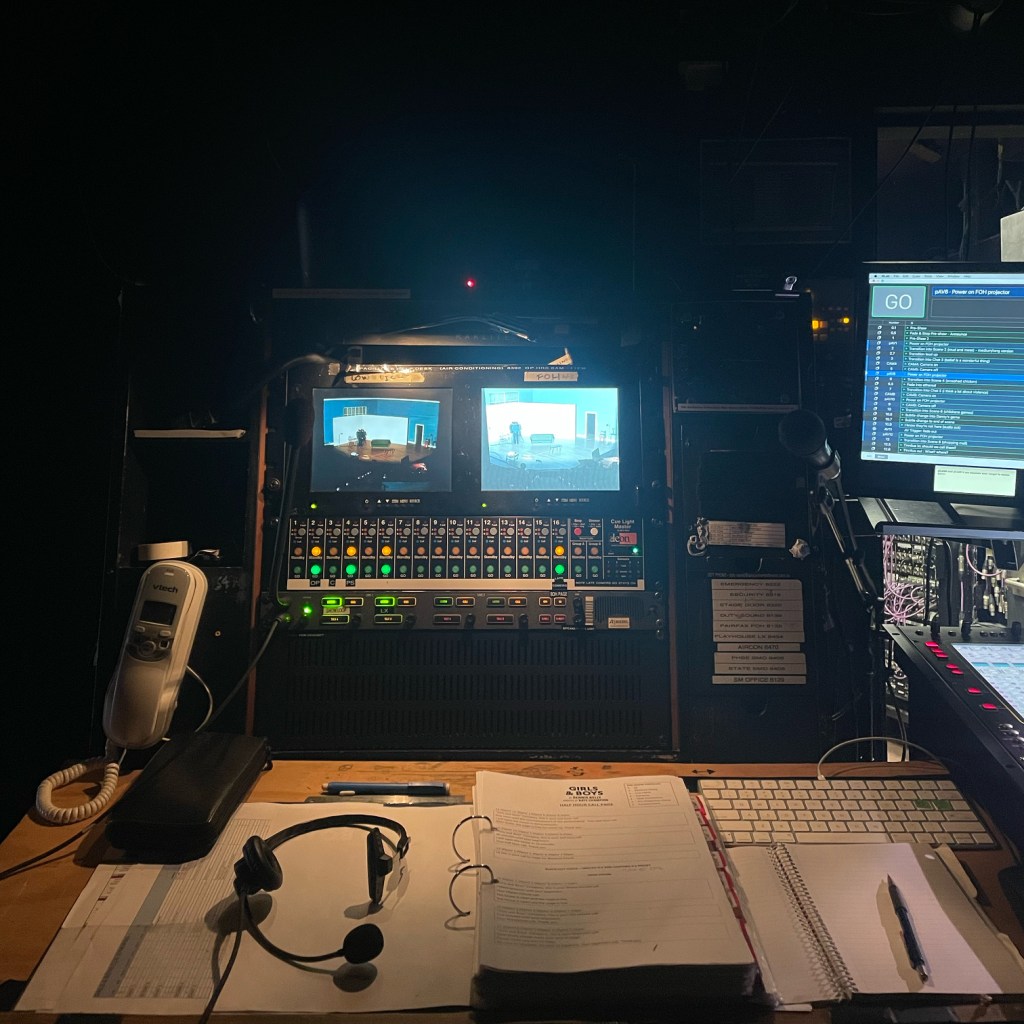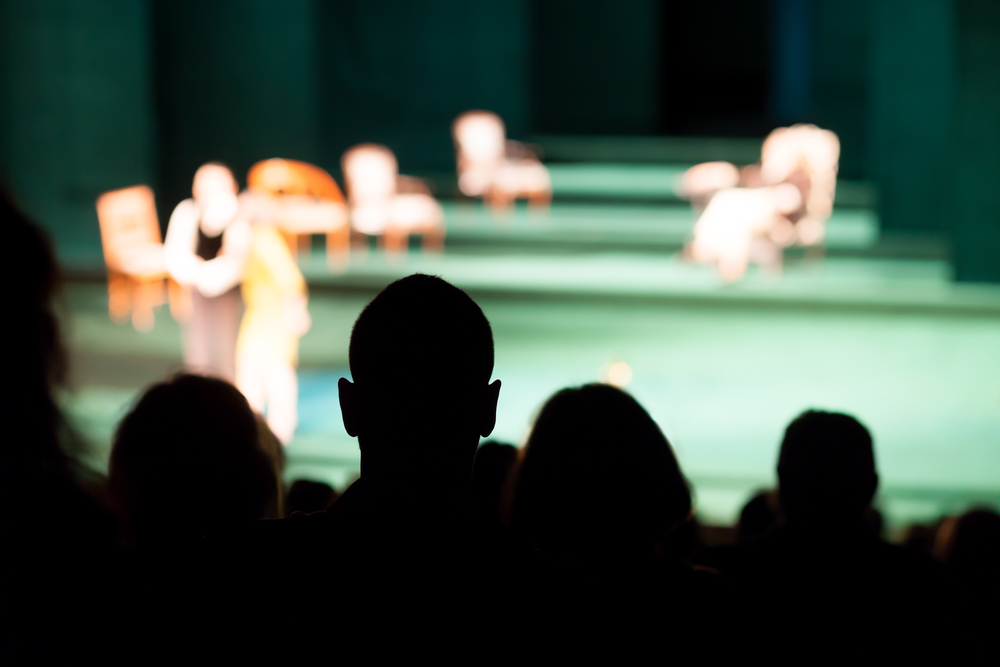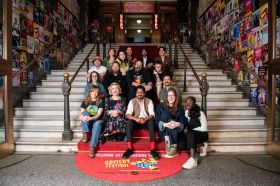What is the magic of theatre?
I ponder this as I watch people of all ages shuffle into the auditorium of the Fairfax Studio in Arts Centre Melbourne, juggling tickets and a phone in one hand, wine in a plastic cup in the other, looking around eagerly for their allocated seat.
It’s Friday night, the room is buzzing. Most patrons have most likely just clocked off from their work week, maybe come from happy hour drinks, shoved a bar snack or two in their mouths, slapped on some lippy or a fancy jacket, and run off waving bye to their colleagues as they hope with all hope they arrive before the theatre doors close.
As the stage manager I watch from the darkness of the theatre control room, up the back of the seating bank, where lighting and sound operators also lurk. We can see everything from this vantage point. We can feel what an audience is going to be like as they walk in.
Tonight, there’s a mix of young and old, all walks of life, which is good for us because it means varied responses throughout.
One patron has gone out three times already to get extra drinks – he’s going to regret that later as this play is an hour and 45 minutes long with no interval. No bathroom breaks in sight.
Then there’s a little confusion with patrons who are in the wrong seat, and the usher has to climb over half the row to sort it out. With near to a full house we can’t have people picking and choosing where they sit tonight.
Clearance is given with a thumbs up through the glass windows, meaning all the audience are in, or all that have made it at this point, anyway. There is a latecomers’ entrance, but we rarely wait for anyone. And tonight Front of House staff need us to start on time because they are also managing audiences for two other shows going up at the exact same time in the State and Playhouse of the theatres building.
Read: Career spotlight: Stage manager
I call the house lights to go down and trigger the Acknowledgement of Country and announcements to play through the sound system. Bright phones blind people as they scramble to turn them off. There’s a few latecomers who have managed to sneak in, clamouring their way to their seats over patrons who are already settled in the half dark.
The announcements finish and I take a long deep breath. This breath is a standby for all of us, all of us in the room, from performer to crew to audience member, a breath to signify that we are on this journey together. And then I say the words, ‘LXQ1… GO’.
As the lights come up, we see Nikki Shiels, alone, on stage. She’s the one who wields the magic, that’s for sure, delivering a masterclass in storytelling every night. This Friday evening is no exception; she oozes warmth and familiarity with the audience from her first line of dialogue. Her words bubble out of her like she’s not talking to 350 people in a theatre but rather talking to you, a friend.
Her performance is vibrant, and like different coloured brushstrokes in a painting, she paints a story in front of us. The audience are captivated. I can see people in the crowd turn to one another laughing together on particular lines. It’s like everyone in the room has known each other for years, rather than just a few minutes.

From where I watch, I see all the responses to every word, every line, every little twist and turn. When the story grows dark, which it does halfway through, I can see couples hold each other a little closer. I see patrons shuffle closer to the edge of their seats. I see hands move gently over mouths. Fingers brushing away tears. No one can help it, no one can help their reactions. They are natural human reactions to hearing a story so honest and true.
One line makes me shiver every night. I’ve seen this play over 30 times and every time Nikki speaks those particular words my body responds. But each night I’m not alone. I look out into the sea of people and that shiver is like a wave moving through the crowd.
I don’t know what these people have gone through, but I see their hurt, I see their pain, for the character, the story being told, and I feel it too. There’s something about being in a room of people experiencing a story together, this one moment, that makes it safe to express those feelings.
Every show is different. It can never be the same as the next because every night brings a new audience, a new energy, a new dynamic to the story. Patrons bring their day, good or bad, their history, their trauma. Whatever compelled them to come to the theatre on that particular night I will never know.
And as I call the lights to fade at the end of the show, another breath is required. A release. Not just for what we’ve just seen, but what we’ve just experienced together. Because theatre is not just a part of the night, it can also be a turning point in life if it makes you think and feel in a different way.
I watch a room of complete strangers come together and become one.
That is the magic of theatre.





